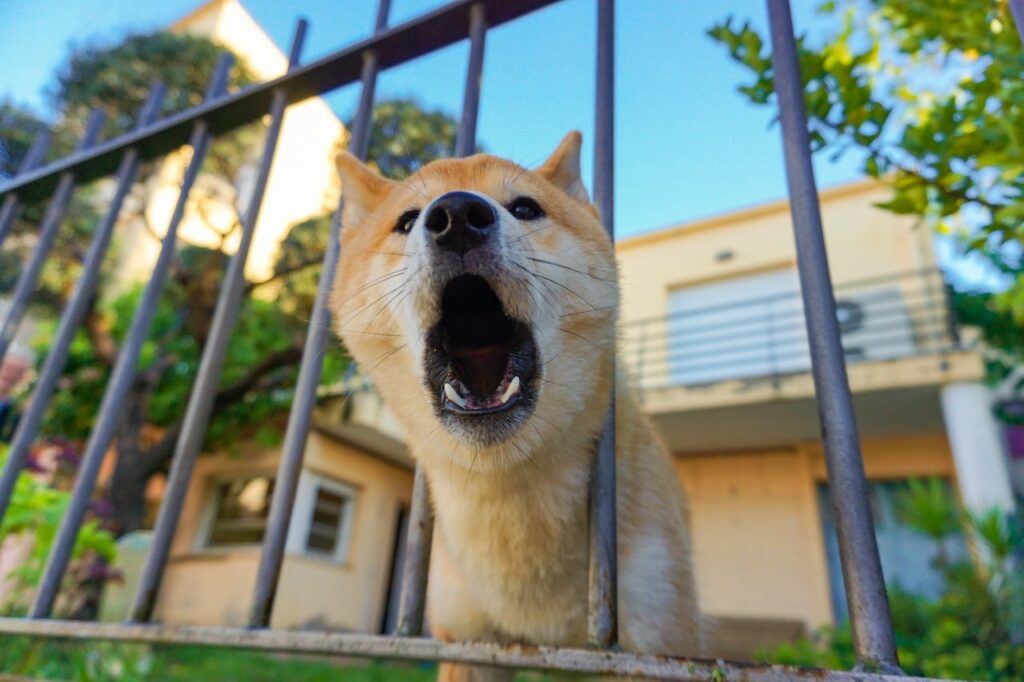How to Train My Dog to Stop Barking at Me
Does your dog’s barking drive you crazy? Do you dread coming home to howls and barks echoing through the house? If so, then this article is for you! It will provide helpful insight into how to train your pup to stop incessant barking. We’ll cover identifying what triggers your pet’s barking and how to use positive reinforcement techniques to break bad habits. Additionally, we’ll discuss how sound and ultrasonic devices can be used effectively and how proper exercise can help manage excessive barking. Put an end to those sleepless nights with this comprehensive guide on training my dog to stop barking at me!
How to Train My Dog to Stop Barking at Me
Training a dog not to bark at you can be difficult, but it doesn’t have to be. With patience and consistency, you can help your furry friend learn how to control their barking and get along better with their human companions. In this guide, we’ll look at some steps you can take to train your pup not to bark at you whenever they are around.
Identifying the Cause of the Barking
The first step in tackling any behavioural issue is understanding why it’s happening in the first place. Is your pup barking out of fear or excitement? Are they trying to protect something or just seeking attention? Knowing why your dog is barking can help you devise an effective training plan that considers their needs.
Creating a Positive Reinforcement Strategy
Once you understand why your pup is barking, creating an effective reward system is the next step. Positive reinforcement works best when training dogs – rewarding good behaviour with treats and praise helps them understand what behaviours are desirable and which are not. You can also use verbal cues such as “good boy!” or “quiet now” when your pup stops barking so they associate these words with positive outcomes.
Establishing Clear Boundaries
Creating clear boundaries helps dogs learn what behaviours are acceptable and what aren’t. This means no petting or coddling when they bark – instead, remain firm and consistent in telling them “no!” Use a leash or muzzle if your pup won’t stop barking despite all efforts. Establishing boundaries also means teaching them commands like “sit” and “stay” to know when it is appropriate for them to vocalize their feelings and when it isn’t acceptable.
Ignoring Unwanted Behavior
When dealing with behavioural issues such as excessive barking, ignoring the behaviour works best in most cases. Dogs will often bark out of boredom or attention-seeking behaviour. Ignoring them in these situations teaches them that such behaviour won’t be rewarded with attention from you, thus reducing its frequency over time. Of course, if your pup barks due to fear or anxiety, then ignoring the behaviour might backfire – in this case, seek professional advice from a qualified veterinarian or dog trainer on how best to handle the situation before taking any action yourself.
Redirecting Boredom-Induced Barking
Providing mental stimulation for bored pups is vital in preventing unwanted behaviours like excessive barking – offering things like toys and puzzle games helps keep their minds occupied while providing much-needed physical exercise! You can also teach them tricks like fetch or agility exercises which provide both physical activity and mental stimulation; this will help reduce boredom-induced barking over time and improve obedience skills generally!
Tips for Training Your Dog Not To Bark At You:
Training a dog not to bark at you can be tricky. Still, by understanding the root cause of their barking and providing them with the tools needed to learn good behaviour, you can help ensure your pet’s success in becoming an obedient canine companion! Following these tips can help you create a well-behaved pup who no longer barks at you whenever they encounter something new or exciting!
- Identify why your dog is barking
- Create a positive reinforcement strategy for desirable behaviour
- Establish clear boundaries between acceptable & unacceptable behaviour
- Ignore unwanted behaviour
- Redirect boredom-induced behaviours through mental & physical stimulation
Things To Avoid When Training Your Dog Not To Bark At You:
- Yelling at or scolding your pet only reinforces bad behaviour rather than improves it.
- Using harsh punishments – can lead to further aggression & anxious behaviours, which don’t solve underlying behavioural issues.
- Neglecting basic care needs – make sure that food & water needs are met regularly & that ample exercise & playtime opportunities are provided
Wrap Up
Excessive barking can be one of the most irritating habits a dog can have, but with the right training techniques, it doesn’t need to be a permanent problem. Understanding how to identify what triggers your pup’s barking and how to use positive reinforcement methods is key in helping you manage their behaviour. Incorporating sound devices and proper exercise into your pet’s routine can help too! With all these tips, you should be able to say goodbye to sleepless nights – take back control of your pup’s barking today!
Good luck and happy training! 😊
If you want to ensure your pet is taken care of and protected, get them insured with furrr.co.uk! With a wide range of plans available, you can be sure your pup will have the best coverage for whatever life throws. With tailored policies and great customer support, you can rest easy knowing that you’re taking the necessary steps to ensure your furry friend’s safety and well-being – so what are you waiting for? Get started today with furrr.co.uk!










